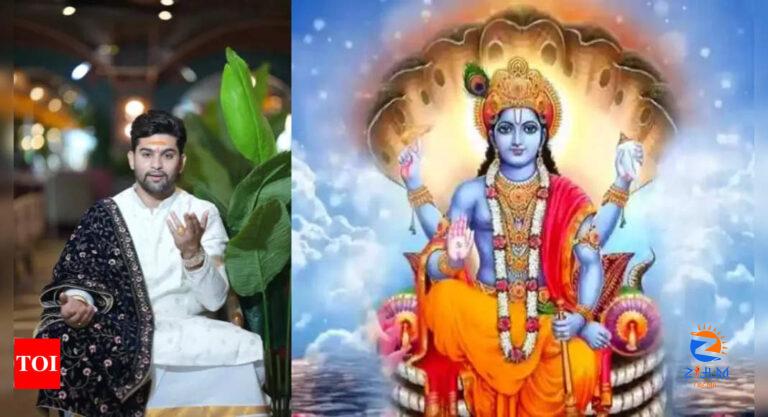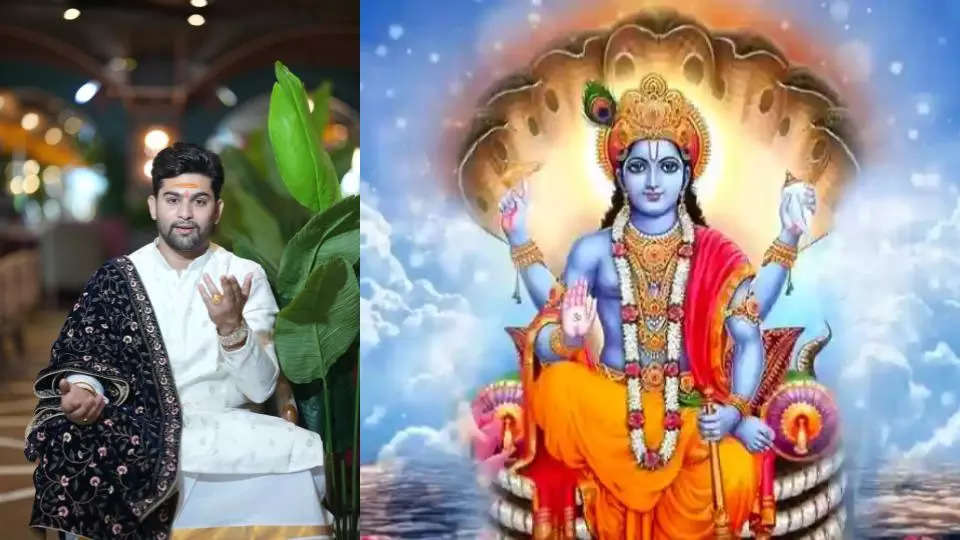
[ad_1]
Ekadashi, a significant day in the Hindu calendar occurring twice a month, is marked by various customs and beliefs. One such tradition surrounds the consumption of rice on Ekadashi days, which holds deep religious significance. Celebrity Astrologer Parduman Suri offers a glimpse into the rich tapestry of traditions surrounding Ekadashi, highlighting the blend of religious reverence and cultural practices that shape these observances.
Observance of Rice Consumption on Ekadashi:
Throughout the year, there’s a customary prohibition on eating rice during Ekadashi. This practice is rooted in religious beliefs, as mentioned in the Vishnu Purana. The Vishnu Purana suggests that consuming rice on Ekadashi lacks spiritual merit, as rice is considered the food of the gods. Thus, eating rice on this sacred day is forbidden out of respect for the deities. Legend has it that Maharishi Medha sacrificed herself on Ekadashi to appease Goddess Shakti. As her birth was associated with rice and barley, abstaining from rice consumption on this day honors her sacrifice. From a scientific perspective, rice contains primarily water elements. Consuming cooked rice on Ekadashi may agitate the mind, while fasting aims to alleviate such restlessness.
The Tradition of Rice Prasad in Jagannath Puri:
Despite the general prohibition on rice consumption on Ekadashi, Jagannath Puri follows a unique tradition of serving rice on this auspicious day. According to mythology, Lord Brahma visited Jagannath Puri seeking Mahaprasad but found only a few grains of rice left, which a dog was licking. Moved by compassion, Lord Brahma joined the dog in consuming the rice. Witnessing this act, Lord Jagannath abolished the prohibition on rice consumption on Ekadashi.
Consumption Practices in Jagannath Puri:
Jagannath Puri, a revered pilgrimage site, is home to Lord Vishnu, Lord Balarama, and Mata Subhadra. Daily rituals include multiple Aarti sessions and bhog offerings. Devotees are encouraged to partake in Mahaprasad, considering it even superior to the deities themselves. A mythological incident emphasizes the sanctity of Mahaprasad over all else. In Jagannath Dham, devotees receive butter-sugar and fifty-six bhog on Ekadashi. This Prasad holds immense significance and is consumed with reverence, symbolizing the culmination of Ekadashi observances.
Observance of Rice Consumption on Ekadashi:
Throughout the year, there’s a customary prohibition on eating rice during Ekadashi. This practice is rooted in religious beliefs, as mentioned in the Vishnu Purana. The Vishnu Purana suggests that consuming rice on Ekadashi lacks spiritual merit, as rice is considered the food of the gods. Thus, eating rice on this sacred day is forbidden out of respect for the deities. Legend has it that Maharishi Medha sacrificed herself on Ekadashi to appease Goddess Shakti. As her birth was associated with rice and barley, abstaining from rice consumption on this day honors her sacrifice. From a scientific perspective, rice contains primarily water elements. Consuming cooked rice on Ekadashi may agitate the mind, while fasting aims to alleviate such restlessness.
The Tradition of Rice Prasad in Jagannath Puri:
Despite the general prohibition on rice consumption on Ekadashi, Jagannath Puri follows a unique tradition of serving rice on this auspicious day. According to mythology, Lord Brahma visited Jagannath Puri seeking Mahaprasad but found only a few grains of rice left, which a dog was licking. Moved by compassion, Lord Brahma joined the dog in consuming the rice. Witnessing this act, Lord Jagannath abolished the prohibition on rice consumption on Ekadashi.
Consumption Practices in Jagannath Puri:
Jagannath Puri, a revered pilgrimage site, is home to Lord Vishnu, Lord Balarama, and Mata Subhadra. Daily rituals include multiple Aarti sessions and bhog offerings. Devotees are encouraged to partake in Mahaprasad, considering it even superior to the deities themselves. A mythological incident emphasizes the sanctity of Mahaprasad over all else. In Jagannath Dham, devotees receive butter-sugar and fifty-six bhog on Ekadashi. This Prasad holds immense significance and is consumed with reverence, symbolizing the culmination of Ekadashi observances.
[ad_2]
